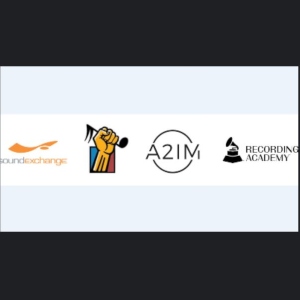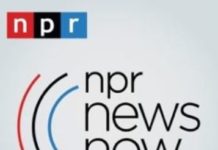
As we’ve been reporting, there has been a movement in Washington to get more money into the hands of local radio operators, in the next round of federal funding, to help them deal with revenue losses as a result of the pandemic. Now, several music organizations are calling language in the HEROES Act a bailout for Big Radio.
SoundExchange, the American Association of Independent Music, the Future of Music Coalition and the Recording Academy issued a statement about the draft HEROES Act put forth by House Democrats. While the organizations do acknowledge that “truly” local broadcasters who serve their communities deserve support, language in the proposal ” essentially greenlights a warrantless Big Radio Bailout for every massive broadcaster within the multibillion dollar industry who can lay claim to a smaller station within their portfolio.”
The organizations specifically call out iHeartMedia, Cumulus and Sinclair stating that if those companies receive any federal funding it will be the small independent broadcasters who get hurt. “The stunningly broad language would divert assistance away from true community outlets in favor of the same mega corporations that have been laying off thousands of local employees in a wave of consolidation. Truly small, non-commercial and community radio stations shouldn’t be forced to compete with huge companies for limited payroll assistance.”
The groups say that there’s a difference between supporting vital local news outlets and billion dollar broadcast conglomerates, “especially given that these enormous radio conglomerates refuse to compensate recording artists for using their music, in contrast with satellite radio and streaming services that do pay. With so many people in need at this time, let’s keep the focus where it should be: small businesses and workers, not on big broadcasters.”
Even though House Democrats plan to vote on their proposal today, The HEROES Act has no chance of passing as is. Both Republicans in the Senate and the President oppose the plan, calling it a Democratic wish list. Yesterday bi-partisan legislation was proposed in the Senate that may have a better chance of passing.








Yes, yes and yes! Some of us who are managing to continue to serve our local communities at big signal single owner-operator station with a much reduced, wonderful staff would love to see some relief to pay bring back staff to full-time again! (Not holding my breath, it’s the PPP all over again. Big companies get funding immediately and some of us are still waiting…)
I keep seeing the phrase “Local Radio” and always wonder what that means since most stations now are owned by huge corporations, with little live, local programming, small if any news staff for the whole market cluster, etc. I think “local radio” is a misused phrase.
Around 25% of all radio stations are owned by big companies. Most are still small. That doesn’t mean they have big local staffs.
Let us not forget Entercom, Townsquare and the rest of the larger radio companies that claim to be local. In my opinion, any company owning more than a few stations outside of a select area are NOT local and should not receive this ballout. Many of these larger companies suck money out of the local economy, put greater importance on digital, voice track and run local stations so lean that makes a skeleton crew look like a full staff.
Any large and medium size company that has terminated positions on the bases of COVID-19 and then receives a ballout should be run out of town on a rail.
These music organizations are correct in what they are saying…because the FACTS back up what they’re saying… iHeart and Pittman have in fact laid off thousands, and their behavior both with the layoffs and the emphasis on voice-tracking prove iHeart’s lack of regard and interest in local programming, excepting some AM news/talk stations, which Pittman cannot voice track or use syndicated programming, at least in key dayparts.
So the music organizations are correct. And yes, the dedicated local small broadcasters deserve the help, no doubt. They are very different than a corporate monolith like iHeart, or Cumulus, which would suck up the taxpayer help only to use it to pay down their massive corporate debt.